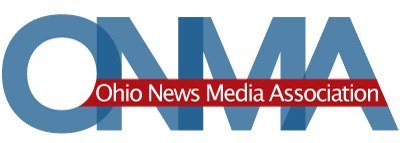Complete Story
05/01/2015
Legislative roundup: Big opportunity lurks in latest open records flap
By Dennis Hetzel, Executive Director
I believe most government officials try to follow our sunshine laws. However, obstinate officials know that they can “just say no” to public records requests because your only recourse is to hire a lawyer and go to court. Few citizens or organizations can afford the time and cost of litigation these days. In addition, attorney fees and fines are rarely awarded, and the fines for violations are laughably low if the stakes are high.
Talk about a tilted playing field. Imagine a football field that slopes about 45 degrees or more from one end to the other with your opponent always allowed to play downhill.
This is why we think it is so important that Ohio join the majority of states that have some type of appeal process, made permanent by statute, that doesn’t require litigation.
Some first steps have been taken, most recently by State Auditor Dave Yost, building on a mediation program started about three years ago by Attorney General Mike DeWine. Either program could be dropped by their successors since they aren’t written into statute.
As we reported in the last Bulletin, Yost raised legislative hackles when he announced during Sunshine Week in March that he would use his statutory authority to conduct “records compliance audits” for disputes with both state and local governments. And a downside of DeWine's program is it being limited to local government disputes. Neither effort goes as far as we would like, but are good starting points.
The House Finance Committee put language into the state budget bill – yes, this has nothing to do with the budget – that would have blocked Yost from doing the audits. In other words, not only would Ohio not have a statutory appeals process for records disputes, state law would prohibit a program to easily resolve disputes with state government agencies. Note, too, that these programs also can save time and money for governmental bodies. After all, they’re correct sometimes.
Yost, to his credit, hit the ceiling, and I believe Ohio newspapers influenced the debate, too, with follow-up stories and editorials. The committee deleted the language from the budget bill that is now in the Senate.
All this turmoil created an opportunity by focusing the Legislature on a problem we’ve been citing for years. Rep. Ryan Smith, the committee chair, issued a statement saying that the House is open to considering a permanent fix. We hear that the Senate is interested, too.
Be assured that ONA already is pursuing ways to work with legislators on this issue. For example, we have ideas on “best practices” from other states. I can’t promise that anything will happen, but this is the best chance since a bill in 2007 to create an appeals process went nowhere.
Here is a roundup of other legislative activity we are following. As always, our complete legislative watch list is available in the members-only area of our website:
Tax reform: Gov. Kasich’s tax reform proposal left the House for the Ohio Senate with all the language of concern to ONA deleted. The most important deletions were broad definitions on the expansion of sales tax to some services that opened the door to taxing advertising sales. While the Senate is not expected to restore this language, we must continue to closely monitor. Increases in the Commercial Activity Tax of more than 20 percent and the overall sales tax rate of half-a-percent also would impact newspapers and their customers. This language is out of the bill at this point. (House Bill 64)
Charter schools: ONA has been active in trying to improve House Bill 2 to achieve checkbook-level transparency of how charter schools spend nearly $1 billion in taxpayer dollars. While this is unlikely, two new bills (SB 148 and HB 156) appear to make significant improvements in access to financial information. Charter school reform is a legislative priority this spring.
Mug-shot sites: A new bill (HB 172) was introduced this week by Rep. John Barnes, D-Cleveland, that goes after websites that charge people before removing criminal and arrest information. The most notorious of these sites are the “mug-shot sites” in which people have to pay for removal only to see the photo pop up on a similar site. While no legitimate news organization would behave this way –this is little short of an extortion racket – bills in some states have raised First Amendment concerns as an effort to regulate the use of public records. The approach in HB 172 is framed more about the trade practices used by these sites. We’re evaluating our position but probably won’t oppose.
Body cameras: This footage is, we believe, presumptively open under Ohio law. However, efforts to regulate body camera usage by police officers seem inevitable. The New York Times just reported that 87 bills related to bodycams have been introduced in 29 states with 15 states moving to limit access. Gov. Kasich just announced that his advisory committee on the use of force by police will include a review of body camera usage and potential regulation. The ONA is working on a comprehensive position paper on access to body camera footage and welcomes input from members.




